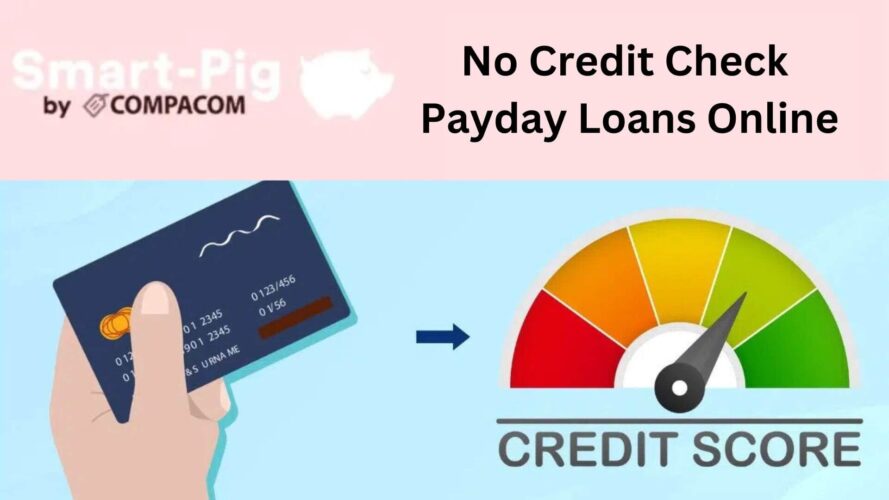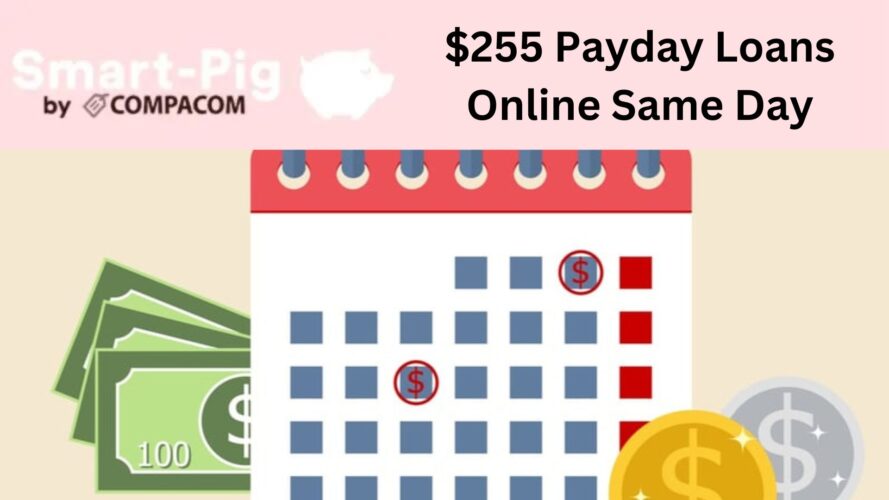Why Choose Online Payday Loans?
When financial emergencies occur, short-term payday loans can be a lifeline to bridge the gap until your next paycheck. These loans offer several advantages that make them a popular choice for many individuals. We work with trustworthy and reliable companies, such as Compacom to ensure our customers receive secure financial support.
Furthermore, online payday loans provide immediate access to funds. Once your loan application is approved, the funds are deposited directly into your bank account on the same day. This quick turnaround lets you address your pressing financial obligations promptly, whether it is paying bills, covering medical expenses, or handling car repairs.
How Do Same Day Payday Loans Work?
The process of obtaining payday loans is designed to be simple and efficient. You can complete the entire application online from the comfort of your own home. Typically, you’ll need to provide basic personal information, proof of identification, a valid bank account, and proof of income. The lender will evaluate your application, considering factors such as your income and employment status, to determine your loan eligibility.
Once approved, you will receive a loan agreement outlining the terms and conditions, including the loan amount, repayment schedule, and any associated fees or interest rates. It’s essential to review this agreement carefully and ensure you understand the terms before accepting the loan. If you agree to the terms, you can electronically sign the agreement, and the funds will be deposited into your bank account on the same day.
Payday Loans are a Click Away! Quick, Easy, and Hassle-Free!
What Do I Need to Apply for Online Payday Loans?
Applying for online payday loans is typically straightforward, requiring minimal documentation. To complete the application, you will generally need:
- Personal information: This includes your name, address, phone number, and email address.
- Proof of identification: A valid government-issued ID, such as a driver’s license or passport, is usually required to verify your identity.
- Bank account details: You will need to provide your bank account number and routing number to facilitate the deposit of funds and loan repayment.
- Proof of income: Lenders often require proof of regular income, such as pay stubs or bank statements, to assess your ability to repay the loan.
It’s worth noting that specific requirements may vary depending on the lender and the state regulations in which you reside. Always check the lender’s website or contact their customer service for precise information regarding the documentation needed for your loan application.
Online Payday Loans with Bad Credit – Is It Possible?
Yes, it is possible to obtain payday loans even if you have bad credit. Payday lenders typically focus less on your credit history and more on your current financial situation. They understand that a poor credit score doesn’t necessarily reflect your ability to repay a short-term loan. Instead, they may consider factors such as your income, employment stability, and overall repayment capacity.
It’s important to note that while payday loans may be more accessible for individuals with bad credit, they often come with higher interest rates compared to traditional loans. It’s crucial to carefully assess the terms, fees, and repayment schedule before accepting the loan to ensure it aligns with your financial situation and repayment capabilities.
Payday Loans are a Click Away! Quick, Easy, and Hassle-Free!
Can I Apply for Small Payday Loans Online with No Credit Check?
While most payday lenders perform some form of credit check during the application process, there are online lenders who offer small payday loans with no credit check. These lenders may focus more on factors like your employment history, income stability, and ability to repay the loan on time.
However, it’s important to exercise caution when considering such loans, as they may come with higher interest rates or stricter repayment terms. Additionally, be wary of fraudulent lenders claiming to offer loans with no credit check. Always research and choose reputable lenders to protect yourself from potential scams.
What to Consider Before Taking Out a No Credit Check Payday Loan?
Before applying for a payday loan, there are several factors you should consider:
- Assess your financial situation
Take a close look at your income, expenses, and overall financial stability. Ensure that you can comfortably repay the loan without jeopardizing your other financial obligations.
- Evaluate the repayment terms
Understand the repayment schedule, including the due date and frequency of payments. Consider whether these terms align with your income and budget. Late or missed payments can result in additional fees and negatively impact your credit score.
- Review the lender’s policies
Familiarize yourself with the lender’s terms and conditions, including any associated fees, interest rates, and penalties for late payments or loan extensions. A transparent and reputable lender will provide clear information about the loan terms.
- Explore alternatives
Before taking out a payday loan, consider if there are alternative options available to you. This could include borrowing from friends or family, negotiating payment plans with creditors, or exploring local community resources for financial assistance.
- Borrow responsibly
Only borrow the amount you need and can comfortably repay. Avoid the temptation to borrow more than necessary, as it can lead to a cycle of debt and financial instability.
Smart Pig Payday Loan Alternatives
- Online Installment Loans up to $5,000
- Car Title Loans with Direct Deposit up to $10,000
- Personal Loans for Bad Credit up to $35,000
- Tribal Loans Online for Any Credit
- Guaranteed Allotment Loans for Employees
The Bottom Line
Smart Pig payday loans can be a valuable financial tool for addressing immediate cash needs. However, it’s crucial to approach them responsibly and make informed decisions. Understand the loan terms, assess your financial capabilities, and borrow only what you need. By doing so, you can effectively navigate financial emergencies and use payday loans as a short-term solution while maintaining a healthy financial outlook.












